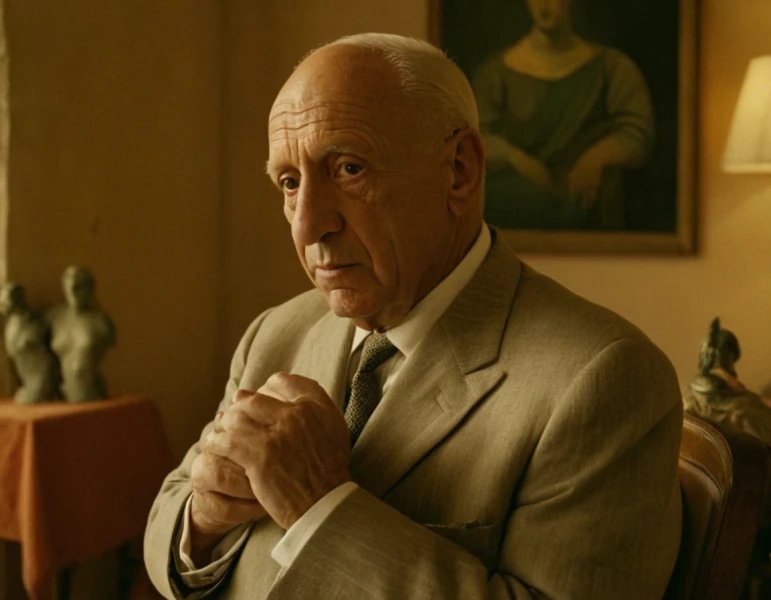Educa UNIVERSITY|ART AND ARCHITECTURE
Works of Art by Pablo Picasso: A History of Genius
Related Masters
Works of Art by Pablo Picasso: A History of Genius
Hello, I'm Carlos Hidalgo, and I'm going to tell you about Pablo Picasso's works of art from my personal experience. Picasso not only changed my perception of art, but also left an indelible mark on universal culture. Ready for this journey?
A Genius Who Broke Molds
First, let's talk about something basic: who was Pablo Picasso?. This Malaga-born artist revolutionized the art of the 20th century. Co-founder of cubism, tireless creator and symbol of modernism, he left a legacy that includes more than 16,000 works, crazy! From painting to sculpture, including ceramics and engraving, Picasso touched all areas and always did it in his own way. But... what makes his works unique

I tell you with my heart in my hand: Picasso understood the world as no one else had before. When you stand in front of one of his works, you feel something different. And that's what makes an artist great.
Picasso's Stages: The Soul of His Works
Picasso is not an artist of a single era; he had several stages, and each one is a different adventure. Here I explain them to you:
1. The Blue Stage
In his early days, Picasso lived through what many of us call a "dark period". Sound familiar? His works, such as The Old Blind Guitarist, show loneliness, poverty and sadness. Blue tones predominate in this stage, conveying melancholy. Believe me, if you've ever felt lost, these paintings speak directly to your soul.
2. The Pink Stage
Picasso finds a ray of light and begins to play with pink and orange tones. Here are born the famous harlequins, characters full of life and color. A work that summarizes this period is Family of Saltimbanquis. It is a lighter stage, almost like a sigh after a storm.
3. Cubism
This is where the world was blown away. Along with Georges Braque, Picasso invented Cubism. Works like Les Demoiselles d'Avignon are not just paintings; they are framed revolutions. Instead of representing reality as it is, Picasso breaks it down, analyzes and reconstructs it.The result? Something that makes you look twice, three, even four times.
Picasso's Essential Works
1. Guernica
To talk about Picasso and not mention Guernica is like talking about rock and forgetting the Beatles. This mural, created in response to the bombing of Guernica in 1937, is a denunciation of war and human suffering. Each figure, each stroke, is loaded with meaning. I myself spent hours in front of this work at the Reina Sofia Museum, and I'm not going to lie to you: I came away moved to tears.
2. Woman in Front of the Mirror
Did you know that Picasso had a muse named Marie-Thérèse Walter? This portrait is one of the most iconic portraits of her. It's like a play between reality and reflection. This is where Picasso proves that beauty has no fixed form.
3. Life
Painted during the blue stage, this work is a glimpse into the fragility of human relationships. It depicts a naked couple facing a mother with a baby, what could be more universal and complex at the same time?.
Why Picasso Remains Relevant
Picasso was not content with the usual. At every stage of his life, he sought new forms of expression. In a world where everything changes at breakneck speed, Picasso reminds us that reinventing oneself is essential.
And now, let me tell you something in red, because I want you to remember it always: Picasso's works are not just art, they are a mirror of our humanity.
A Heart to Heart Tip
If you have the opportunity to see his works live, don't hesitate for a second. Whether it's the Museo Picasso in Malaga, the Museo Reina Sofia in Madrid, or even a traveling exhibition, do it for yourself and your creative spirit
.Faculties
Trainings
The faculties embrace diverse academic disciplines and fields of study, opening doors to new perspectives and exploring different spheres of wisdom in a constantly evolving world.














